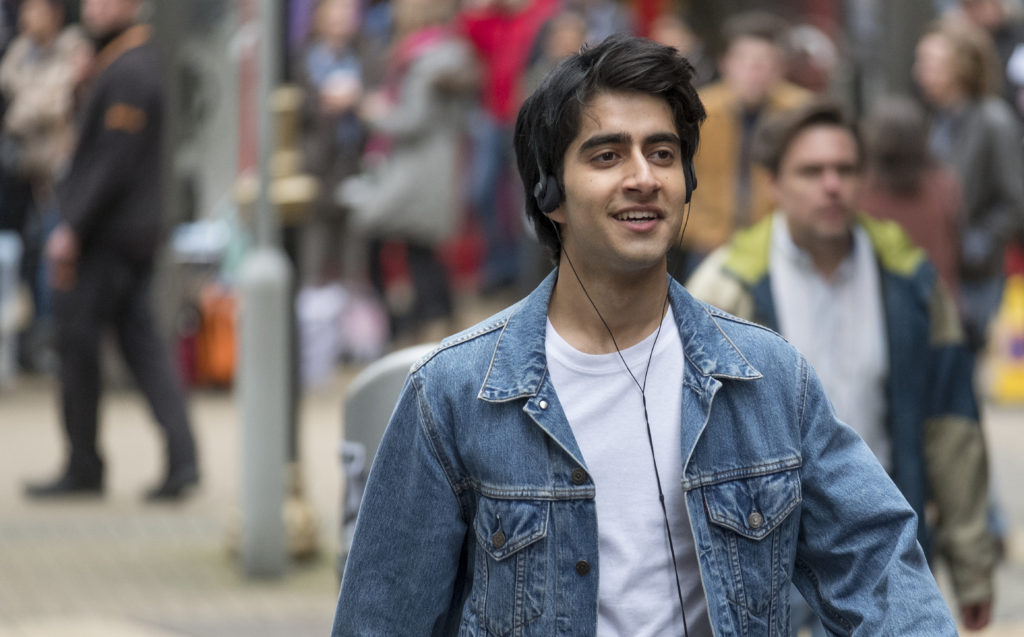
All images provided by Warner Brothers.
By Erin Chew
When I first stepped into the movie theater to watch the advance screening of Gurinder Chadha’s Blinded by the Light, I wasn’t sure what to expect or whether I would enjoy it. I mean, from my reading of it prior to the screening, I thought it was just a drama about the search for identity as a Western Asian with references to the music of Bruce Springsteen. But after watching the film, I left with tears welling up in my eyes; looking at the random movie goers sitting to my side, I could hear sniffles, and I knew at that point that this film is a winner.
I, as an Asian Australian, could relate to just about everything in the film in terms of it showing the impact of racism, ostracism, and the generational gap between parents and children and the conflicts which come with all that. Blinded by the Light was about this but more because it linked 1980s suburban Britain and how the rise of right wing White supremacist movements impacted Pakistani British teenager Javed (played by Viveik Kalra) and his local community of Luton (not London), and how he navigated this by following his dream of being a writer motivated by the music and lyrics of Bruce Springsteen. The film was inspired by the life of journalist Sarfraz Manzoor (who I had the opportunity to interview) and his love for Springsteen’s music and writing under the disapproving eyes of his traditional Pakistani parents.
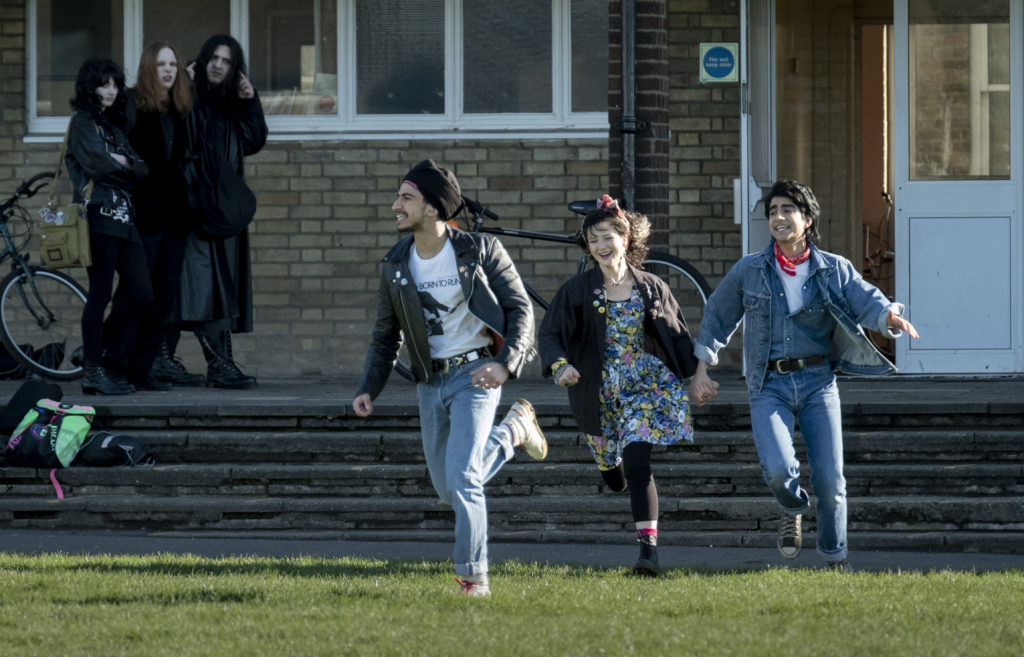
Having watched the film and interviewing Gurinder Chadha, Sarfraz Manzoor, and Aaron Phagura (who played Roops), I was able to see how the film had so much meaning and significance in talking about serious issues faced by ALL Western Asians as well as highlighting the visibility of South Asians in Western media. On that note, before I get into the interview, I would like to point out that Chadha and Manzoor have ticked off an unknown item on my bucket list (which surprised me), and that is to watch how a comedy-drama about the search for Asian identity and belonging can be closely linked to the music and lyrics of Bruce Springsteen—never in a million years would I think of this connection at all. But when I spoke to Manzoor, whose life inspired the film, that connection made a lot of sense, as well as why Bruce Springsteen’s music meant so much to him growing up in 1980s Britain and now as an adult and a father of two.
SARFRAZ MANZOOR: When I wrote the book, the subtitle was Race, Religion and Rock and Roll. What I was trying to say is that this story, my story, is one about the desire to belong somewhere. When you are an ethnic minority, people tend to categorize you, and, for me, loving writing and loving the music and lyrics of Bruce Springsteen were my own choices and my choices is something which does not allow others to categorize me nor is it something decided upon by my family and culture. My entire life is about searching how to find myself and I do this through my own choices, so I won’t be defined by what I was born in.
And even though it has been over 30 years since I first listened to the music of Bruce Springsteen, I still get excited when I listen to his songs today. Every song of his mean different things to me and the significance of his songs mean different things as I grow older. I think he has created so many songs which have become legend because the range is so broad and even today you can still go back and listen to his music and the lyrics will mean different things at different stages of life—well that is how I feel about it.
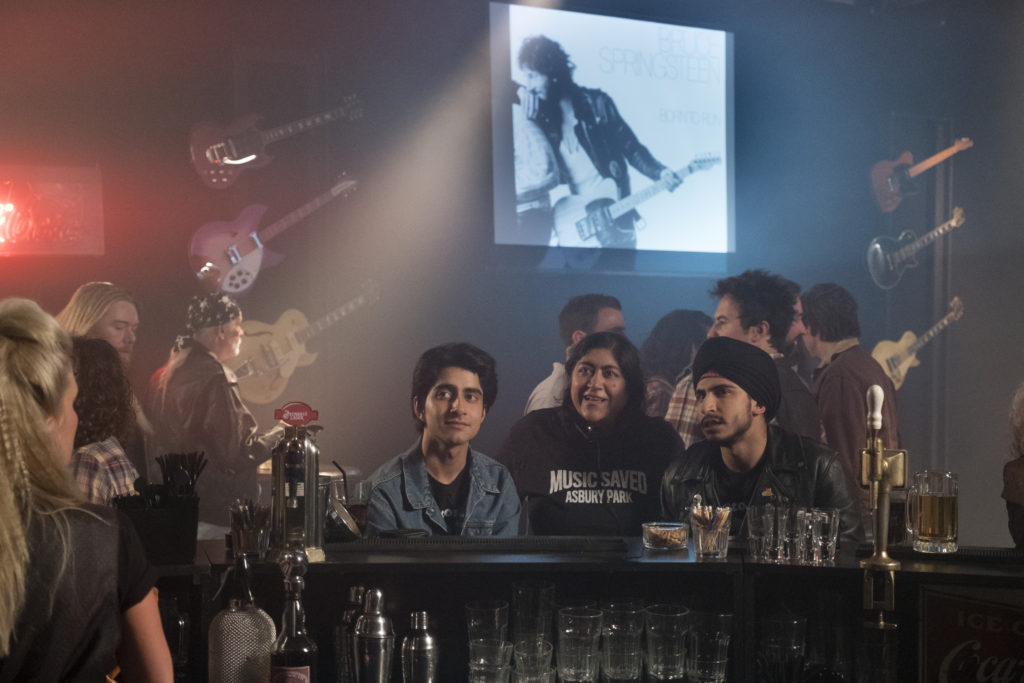
One of the most important takeaways I took from the film was the importance of friendships and relationships. In the film you will see romance, true brotherhood, and the conflicting love of family dynamics. But the friendship between Javed and Roops was the most outstanding portrayal of brotherhood because they formed their friendship in many ways out of necessity (being two of the only South Asians in their school), but they bonded over Bruce Springsteen’s music and it was Roops who introduced Javed to Bruce Springsteen and told him that it would transform his life and his perception of life in Luton. Their friendship transcended beyond religion and cultural differences (despite both being of South Asian background) and this was one of the rare occasions where you see a regular Sikh character wearing a turban proudly being positively represented in Western media. I bought this up with both Manzoor and Phagura and this is what they stated about the importance of friendship and brotherhood:
SARFRAZ MANZOOR: I agree that the friendship/brotherhood between Javed and Roops was one of the most important focal points of the film. I mean Amolak (Roops in the film) and I are still great mates. It is also great to know someone since you were 16 and with whom you remain great friends with 32 years later and now our friendship has been immortalized in the film with both Viveik and Aaron doing an exceptional job in portraying how important and special our friendship/brotherhood was and is today.
AARON PHAGURA: I so enjoyed playing Roops but at the same time I felt pressure knowing that the real-life Roops (Amolak) would be watching how I portray him, so I knew that I needed to do the best I could to provide a true and authentic character but at the same time still be me and show my traits and talents. So for me to know more about the friendship and bond between Sarfraz and Amolak, I had to meet both of them and observe their dynamics being together. One trait which is what the film is based on but is also a true reflection of their friendship is their love for Bruce Springsteen. Their friendship is based on that and even today when both are in their 40s—with Amolak being a high flying banker and an extrovert and Sarfraz being a writer and an introvert—their love for Springsteen is the glue of their friendship.
Personally, I am in many ways like my character Roops in that I am an extrovert like Roops (and Amolak in real life) is. And we both have a love for music and life and I think being so similar myself was how I could portray Roops in the best way possible.
And before I get into the final part of this article talking about representation, I was extremely curious about why director Chadha, who has directed so many films and TV shows in the UK such as Bride and Prejudice, decided to take on this project and immortalize the life of Sarfraz Manzoor in film:
GURINDER CHADHA: Two things—I am also a fan of Bruce Springsteen and I thought how novel was it that the music of Bruce Springsteen, a non-Asian and an American, could impact greatly on the life of a British Asian teen growing up in the 1980s. I mean, it is so unexpected right? But more importantly, I loved the man and his philosophy in life that no one wins unless we all win—isn’t this the equality we are all trying to achieve?
Also, I love telling the stories about the British Asian experience and this is a mission of mine to continue to do so, and with Blinded by the Light no one would believe that the life of a British Asian is intrinsically linked with Springsteen. My other reason for taking on this project is that I was very upset with the xenophobia which is alive and kicking in the UK, particularly at the time of Brexit and I knew I had to do something about that.
Another point I would like to mention is that the beauty of stories told by the Asian diaspora is a story which everyone can relate to, especially if you come from immigrant backgrounds. Our common struggle is that being part of the Asian diaspora in the West/Europe, we are expected to fulfill both our own dreams in our countries and at the same time fulfill our promise to our parents that we will have a better life than them—this is a potent scenario that we all have a mutual understanding of. That is the immigrant psyche and part of being sons and daughters of immigrants. If anything, this was the primary reason for me to take on this project.
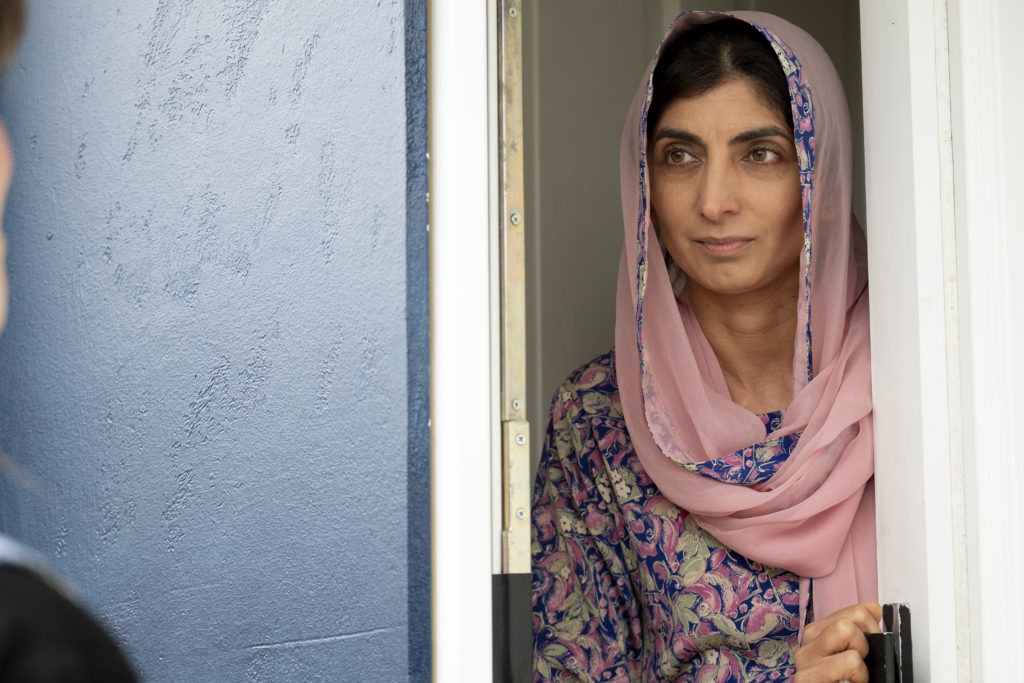
Finally, I spoke to both Phagura and Chadha about the importance of Asian representation in Western media and honed in specifically on whether the movement for more positive representations of South Asians (outside of Bollywood) is becoming more common or if these representations a sign that there is still a long way to go:
AARON PHAGURA: I definitely think that there is a long way to go. I mean aside from my character Roops, it is rare to see positive and regular representations of Sikhs in Western media. I feel that it is an obligation for my generation as an Asian person to pave the way for the next generation. This is like how Gurinder has paved the way for our generations with all the films she has made. There are not enough Gurinders who represent their own culture but also represent all cultures in such a positive and human light. I definitely hope I can positively add to this movement and show that we South Asians in the West do have legitimate and awesome stories to tell.
GURINDER CHADHA: Positive representations of South Asians in Western media is so important to me. If you look at the character of Roops, he wears a bandanna under his turban and that is in many ways humanizing him and being a British teenage Sikh boy. I love telling the British Asian experience and, until other people start telling them more, I will keep doing it. Our lives in the UK shouldn’t be invisible and like everyone else in the UK, we have every right to tell our stories in the most authentic way possible. But I agree with you that we have a long way to go before we see a good number of positive representations of South Asians and, more broadly, Asians in Western media.
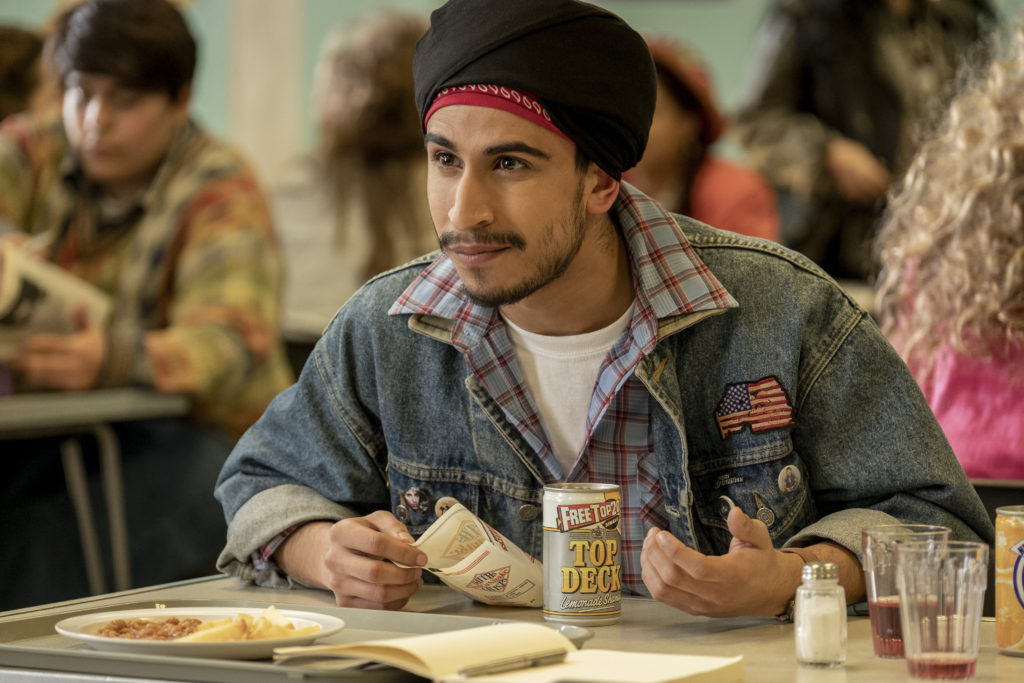
In saying that, Blinded by the Light was such a delightful film to watch. As I stated at the beginning, the primary reason is that I could resonate with it, and whether you are an Asian who was born/raised in the UK, the US, Australia, Canada, New Zealand, Europe, etc., you will definitely see so many connecting lines after you watch this film. Also, the Bruce Springsteen link is surprising in many respects but also executed so well.
Blinded by the Light opens August 9th in the UK and August 16th in the US, so don’t forget to check it out and support it on opening weekend. Check out the trailer below.
